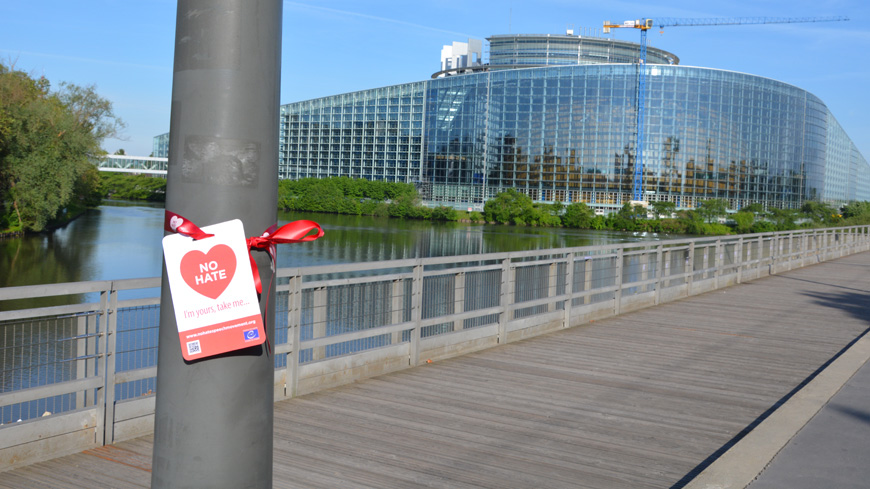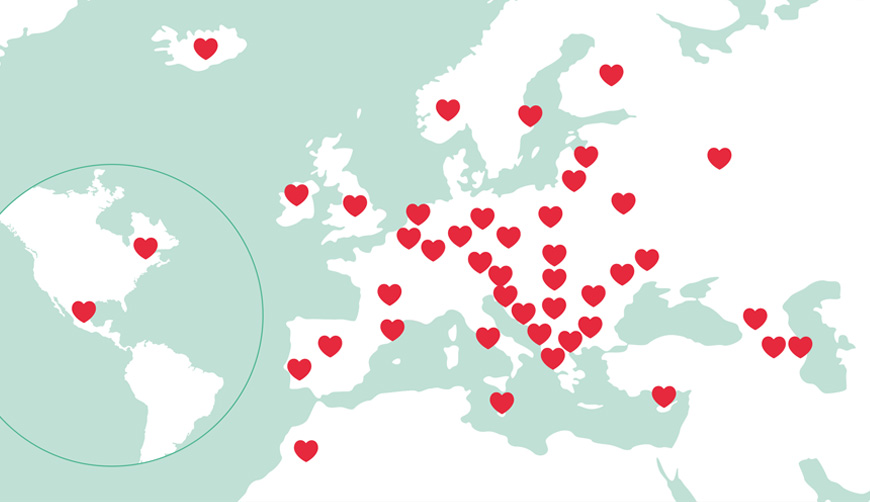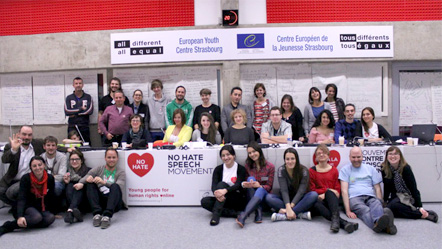About the Campaign(s)

The No Hate Speech Movement is a Council of Europe youth campaign to address and combat hate speech by mobilising young people to speak up for human rights and democracy online, and to reduce the acceptance of hate speech by reporting and denouncing it.
It is composed of national campaigns in over 40 countries which together with European partners and online activists work to implement the campaign objectives and priorities for 2016 and 2017.

The No Hate Speech Movement has been run by the Council of Europe’s youth sector since 2012. It aims to combat online racism and discrimination, by mobilising young people and youth organisations to recognise and act against these human rights violations. The project is based on youth participation and co-management. It was initiated by the youth representatives in the Joint Council on Youth, the committee which brings together youth leaders from the Advisory Council on Youth and the governmental youth representatives of the European Steering Committee on Youth. The project is therefore being carried out by young people with the support of governmental youth institutions.
The campaign has been prolonged until the end of 2017 as part of the Council of Europe Action Plan on the Fight against Violent Extremism and Radicalisation Leading to Terrorism. In addition, the campaign contributes to the Action Plan for Building Inclusive Societies and the Council of Europe Strategy on Internet Governance, which advocates for an open, inclusive, safe and enabling online environment.
 A campaign for human rights online
A campaign for human rights online
The campaign is designed to promote freedom of expression online by providing a safe space for people to express themselves free from fear of hate speech. The campaign seeks to decrease the levels of acceptance of hate speech, online and offline. It combats hate speech in all forms, including those that most affect young people, such as cyber-bullying and cyber-hate. The campaign is based on human rights education, youth participation and media literacy.
The campaign mainly operates on the online platform www.nohatespeechmovement.org where anyone can join and share resources and experiences. It also hosts the Hate Speech Watch, an online tool for reporting, monitoring and education on hate speech. It also provides information on national reporting mechanisms.
The campaign also relies on offline activities such as training courses, seminars, conferences, youth events, festivals and flash mobs. The campaign highlights the importance of involving school communities as well as non-formal education and youth work practitioners.
For more information please see the campaign's objectives and priorities for 2016-2017 and the activity reports of the European campaign and national campaigns.
 Decentralised national campaigns within the campaign
Decentralised national campaigns within the campaign
The campaign is run by the Youth Department of the Council of Europe - under the responsibility of the Joint Council on Youth. This is the European umbrella organisation through which national and local campaigns are carried out. The campaign is decentralised into national campaigns so as to better reach young people and reflect all the specifics issues and cultural and linguistic realities of the Council of Europe region.
 Target groups
Target groups
The campaign’s main target groups are the public at large and Internet users, with specific attention given to young users. “Victims” and “haters” are also considered through specific measures and throughout the wider project. The approach towards each target group can be summarised as follows.
- Online activists will develop practical tools and counter-arguments to hate speech; they can network and receive more support and recognition.
- Young people, and the general public, will develop awareness on the prevalence and severity of hate speech and the risks it poses to human rights and democratic societies. They can support the campaign, denounce hate speech and advocate for human rights online.
- Victims of hate speech receive recognition and support; they can be included in the campaign as participants with particularly relevant experience.
- Perpetrators of hate speech are provided alternatives for expressing discontent while abstaining from hateful narratives. Their hateful expressions are denounced, possibly reported and counter-narratives are presented.









